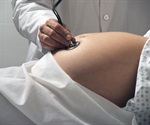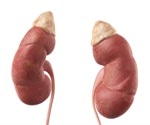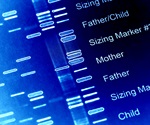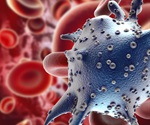
Latest Eating Disorders News and Research
FDA approves CBD oral solution for treatment of seizures related to tuberous sclerosis complex
Today, the U.S. Food and Drug Administration approved Epidiolex (cannabidiol) [CBD] oral solution for the treatment of seizures associated with tuberous sclerosis complex (TSC) in patients one year of age and older.
New review provides an update on management of premenopausal osteoporosis
Osteoporosis, a disease which leads to bone fragility and an increased risk of fractures, is very common among postmenopausal women, affecting around one in three over the age of 50 worldwide.
Study investigates the causes and effects of excessive exercise in people with eating disorders
For most people, exercise is healthy for both body and mind. Hours spent jogging, bike riding or lifting weights can elevate mood, boost heart health, build muscle and spur weight loss.
New studies examine outcomes of kidney transplant recipients with COVID-19
Two new studies examine the health and outcomes of patients with COVID-19 who have undergone kidney transplantation or are receiving hemodialysis. The findings appear in an upcoming issue of CJASN.
Research reveals new genetic insights into how the brain folds
New research is helping unlock the mystery of how the brain folds as a baby develops in the womb - a process critical to healthy brain function.
Novel radioisotope therapy could provide favorable prognosis in neuroblastoma patients
Neuroblastoma is one of the most common cancers in children and has limited treatment options.In a new study, researchers from Kanazawa University retrospectively analyzed children with refractory or relapsed high-risk neuroblastoma who were treated with 131I-metaiodobenzylguanidine (131I-MIBG) and discovered a favorable prognosis in these patients.
Research highlights nutritional risks among female athletes
Two decades of research among female athletes over the age of 13 years shows that a lack of nutrition knowledge about what they need to eat to stay healthy and compete may contribute to poor performance, low energy and nutrient intake, and potential health risks, according to a Rutgers Robert Wood Johnson Medical School study.
COVID-19 negatively impacts people with eating disorders
A study analyzing the early impact that coronavirus disease 2019 (COVID-19) is having on people with eating disorders has identified areas where their treatment needs could be better addressed.
How the brain makes a limb feel like it does not belong
What is body integrity dysphoria (BID)? News-Medical speaks to Professor Peter Brugger and Dr. Gianluca Saetta to find out.
CBT found to be effective in treating binge eating disorders in adolescents
A study published in Psychotherapy and Psychosomatics found cognitive behavioral therapy to be effective, in treating binge eating disorder in adolescence, with lasting results.
Young people cite barriers to seeking help for eating disorders
A new study has found young people are leaving it 'too late' to seek help for eating disorders, citing fear of losing control over their eating or weight, denial, and failure to perceive the severity of the illness as reasons not to get professional advice.
Digestive symptoms are common in COVID-19 patients, study reveals
The American Journal of Gastroenterology published today a new study that reveals digestive symptoms, including diarrhea, are common in COVID-19 patients. The study comes from the Wuhan Medical Treatment Expert Group for COVID-19 in China.
Study sheds new light on the neurobiology of starvation in patients with anorexia nervosa
Researchers at University of California San Diego School of Medicine have discovered differences in brain circuitry that contribute to starvation and weight loss in people with anorexia nervosa
New templates for improving assessment of senior cancer patients
While older adults, defined as those 65 and older, make up the largest percentage of cancer patients and survivors, this group is not adequately represented in clinical trials, research at the University of Cincinnati has shown.
King's researchers launch largest ever study into eating disorders
Researchers at King's College London have launched the largest ever study into eating disorders. Partnering with the National Institute for Health Research BioResource and the eating disorder charity Beat, they aim to recruit at least 10,000 people in England who have experienced an eating disorder at some point in their life to a pioneering new study that aims to unlock the secrets of eating disorders.
Behavioral therapy assisted by a smartphone app helps patients with binge eating disorders
Behavioral therapy assisted by a smartphone app, delivered via telemedicine by a health coach, was an effective treatment for several symptoms of binge eating disorders, according to a study conducted by researchers from the Icahn School of Medicine at Mount Sinai and published this week in The American Journal of Psychiatry.
Exercise addiction more common among people with eating disorder
New research shows that exercise addiction is nearly four times more common amongst people with an eating disorder.
UK sees sharp rise in hospital admissions for eating disorders
The number of people being admitted to hospital for eating disorders in the UK has increased by more than one-third (37%) over the last two years.
Researchers find many psychiatric disorders share the same gene variants
An international team of researchers has found that many psychiatric disorders share a common and specific set of gene variants.
Study examines link between social media and disordered eating behaviors in young adolescents
New research indicates that social media is leading young adolescent girls and boys down a worrying path towards developing body image issues and eating disorder behaviors - even though they are smartphone savvy.










































.png)









No hay comentarios:
Publicar un comentario